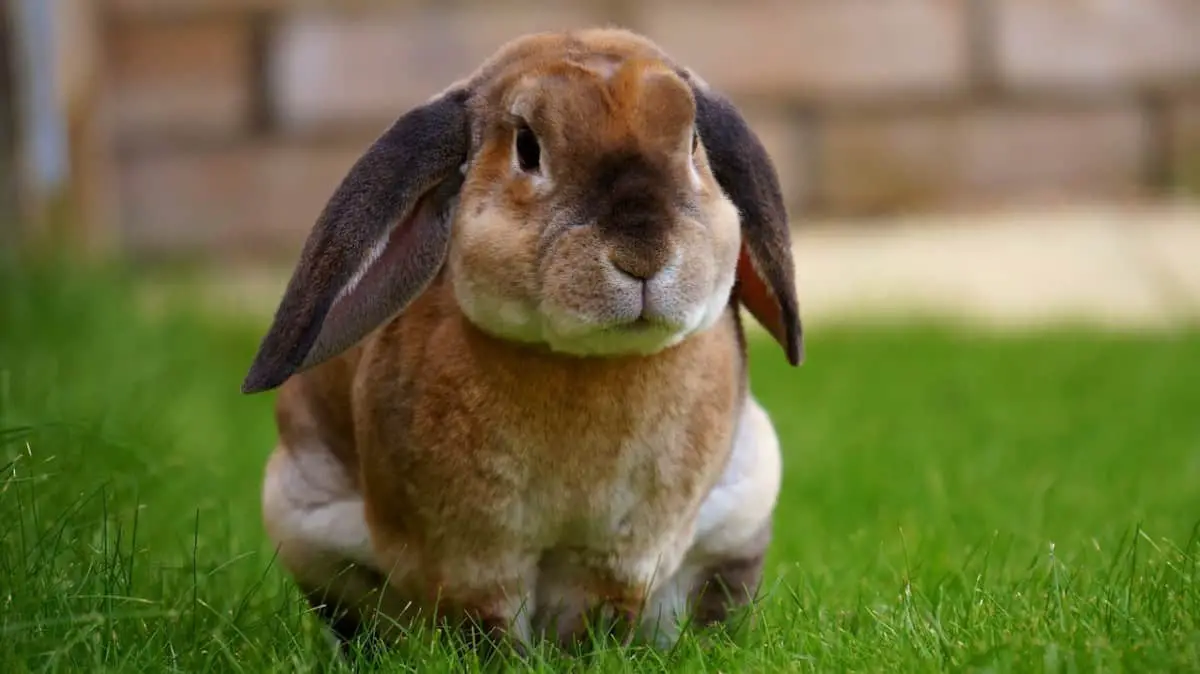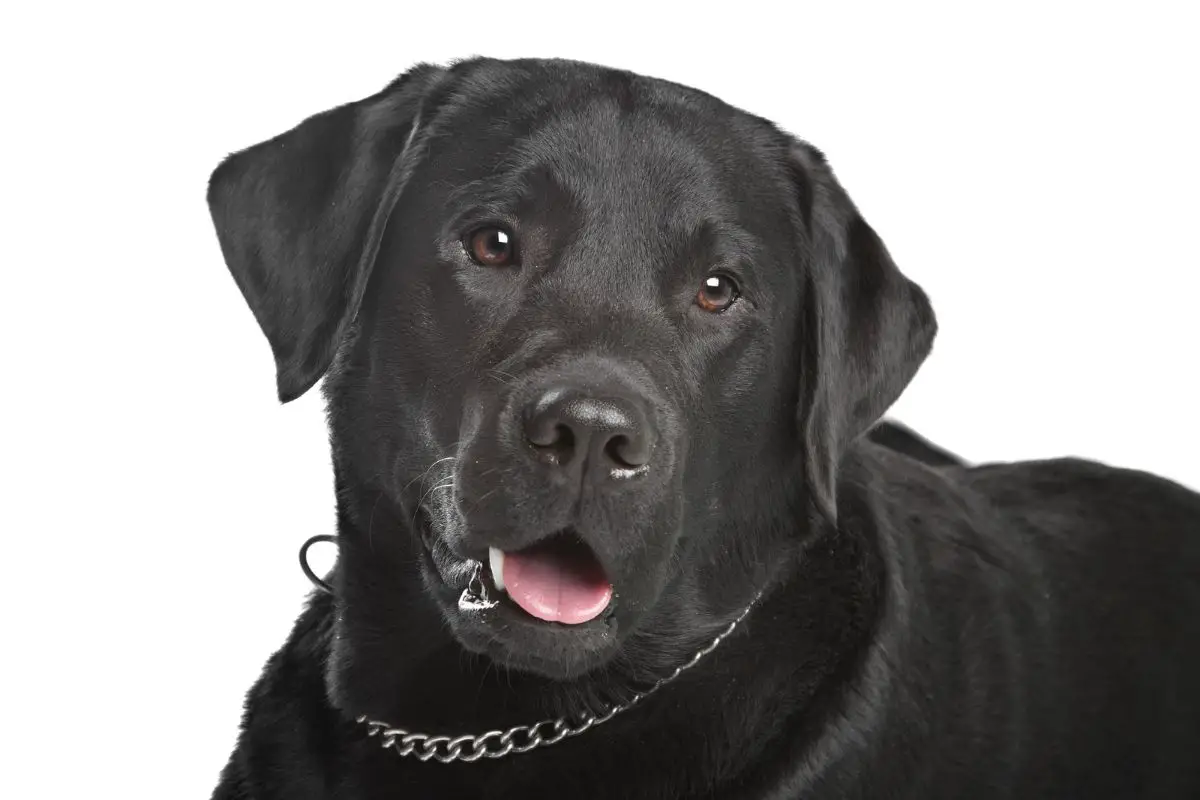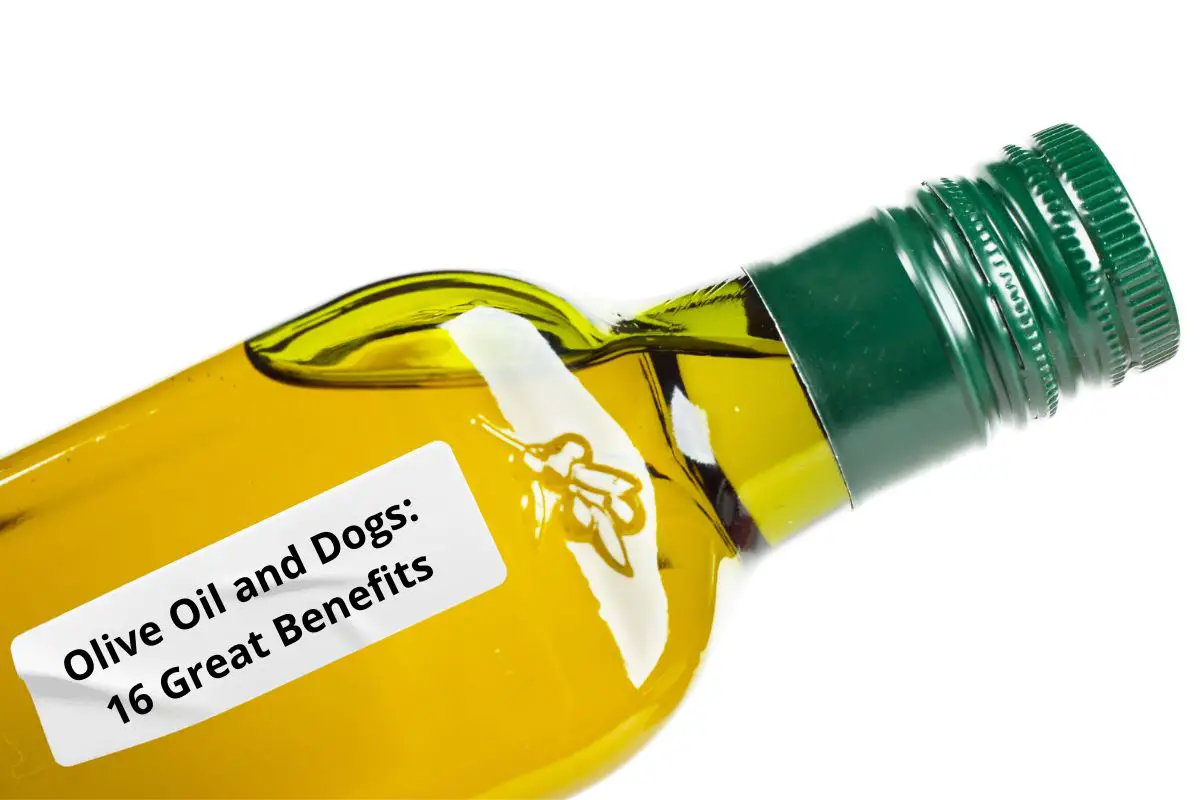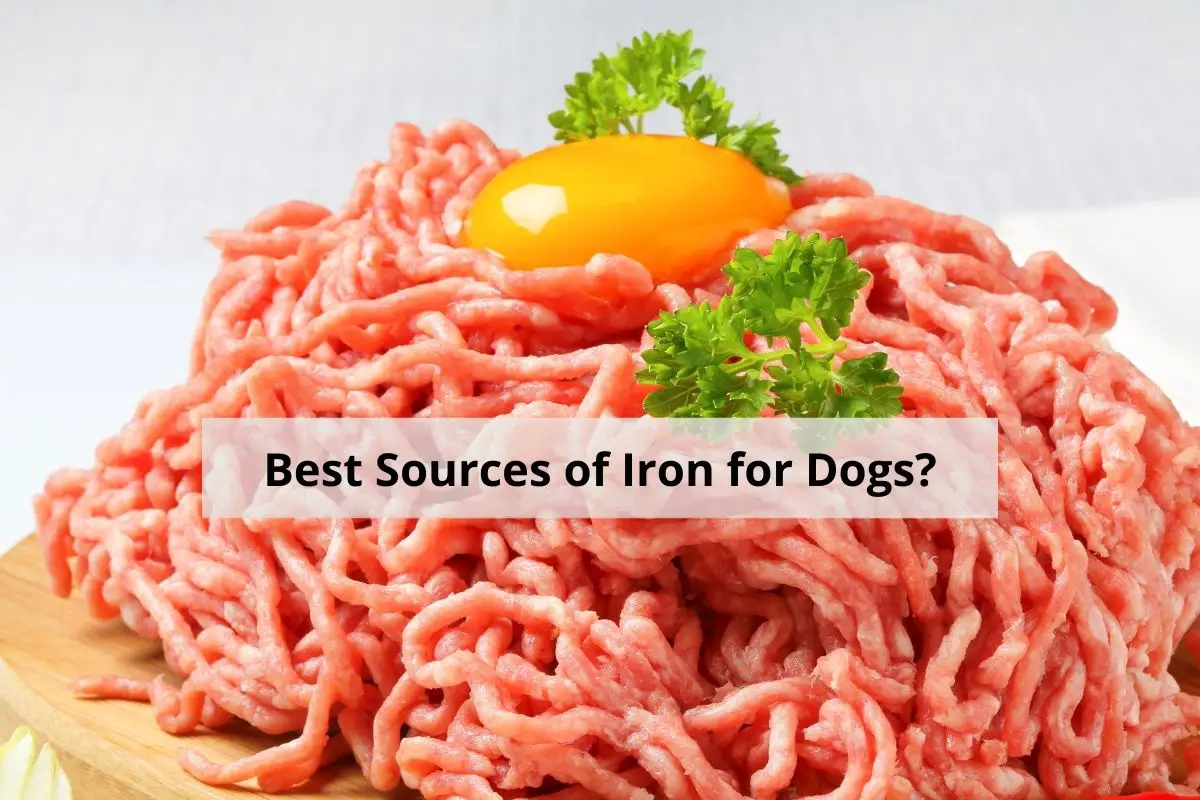This post contains affiliate links.
Dogs and rabbits are perfect candidates for an interspecies household since they typically get along well. Sometimes, they can get too friendly to the point of eating each other’s food. But physiologically, is it possible for a rabbit to eat dry dog food?
Rabbits can’t eat dog food as their digestive tract is different from that of dogs. Dog food contains animal fat and protein, which are not suitable for rabbits as they’re herbivores. Eating dry dog food regularly or in large amounts may be harmful to their health.
In the rest of the article, we’ll discuss why you should keep your rabbits away from dry dog food. You’ll read what problems eating dog food can create for your pet bunny and we’ll go through what you should feed your rabbit to meet its dietary requirements.
Table of Contents
Why Is Dry Dog Food Bad for Rabbits?
Rabbits are herbivores, so a large portion of their diet has to be a high-fiber one made up of plant items such as grass, leaves, fruits, and flowers. Rabbits’ digestive tracts, like those of cows and horses, are designed for grazing. Instead of eating once or twice a day, they get their necessary nutrients through constant nibbling. If they don’t eat for a long time, they might get sick.
Rabbits produce droppings called cecotropes. These are partially digested food that they reingest after they pass it. Their gastrointestinal tract, and especially the cecotropes, allow them to eat and digest foods that many other animals can’t. But it doesn’t mean eating dog food is healthy for them.
On the other hand, dogs are omnivores, which means they can eat both meat and plants. Unlike rabbits, dogs can get their required nutrients by eating once or twice a day. So, they don’t need to be eating all the time. Dry dog foods are produced based on these physiological features.
Dog food contains large amounts of protein, fat, and carbohydrates. Since protein and fat are mostly derived from animal sources, they’re not suitable for rabbits.
What Happens if a Rabbit Eats Dry Dog Food?
Although consuming dry dog food in small quantities may not lead to severe issues for rabbits, you shouldn’t allow your pet to do so. Your bunny may experience any of these problems:
Obesity
Since dry dog food contains high levels of animal fat and carbohydrates, if your pet rabbit eats it regularly, it can lead to weight gain. Rabbits get their daily intake of carbohydrates in the form of fibers, so they don’t need more. Obesity, in turn, can lead to many other health-related problems, even strains on joints due to excessive pressure on the rabbit’s fragile bones.
Dental Problems
In addition to the ingredients, the texture of dog food is exclusively designed for consumption by dogs. These two kinds of animals are different in their teeth shapes. Rabbits’ teeth have evolved to chew and tear plants, and dog food is not suitable for them.
Urinary Tract Infections
This side effect is the result of high levels of calcium in dog food. Small amounts of calcium don’t cause serious problems because their typical diets also contain some degree of this mineral. However, dog foods are calcium-fortified that your bunny can’t process.
The undigested calcium accumulates in the rabbit’s urinary tract, causing infections and even stones in the kidney and urinary tracts.
Gastrointestinal Disturbances
Rabbits can’t digest animal fat and proteins because the enzymes in their digestive system are designed to process plants. They can have negative influences on your rabbit’s intestinal flora even in small amounts.
One major gastrointestinal problem associated with dog food is enteritis or the inflammation of the digestive tract. Grains like corn in dog food can lead to this problem. Also, high levels of protein, which dog food is rife with, might lead to enteritis.
Healthy Diet for Pet Rabbits
Rabbits that live in their natural habitats have access to a wide range of plants, including grass, leaves, seed, fruits, and even flowers and twigs. Pet rabbits should also have a similar diet with a diverse range of plants to ensure no problems arise due to their diet.
Here’s what a typical daily diet for house rabbits should contain:
Grass Hay
Eighty percent of your bunny’s diet should contain hay grass for healthy teeth and digestive tract. It doesn’t matter which variety you choose because all of them have high levels of vitamin A and D, protein, calcium, and many other nutrients. However, don’t overuse alfalfa because, as a legume—not grass—its calorie and protein content is excessive for house rabbits’ daily intake.
Leafy Greens
Leafy vegetables are rich in nutrients and can provide a diverse diet for your rabbit. Their texture helps promote dental health since most of them require a lot of chewing. Kale and cabbage, collard greens, spinach, beet greens, artichoke leaves, and watercress are among the best greens you can feed your rabbit.
A recommended serving size is 1 cup per 2 pounds (900 g) of body weight. You can give your pet this amount in one feeding or divide it into several servings during the day.
There are some greens that your rabbit should take in moderation. Root vegetables have higher amounts of starch and sugar, which can lead to obesity.
Fruits
Since fruits are high in sugar, you should feed your bunny only small pieces. Wild rabbits do have access to fruits in nature, but they are available to them at some specific times of the year. Use fruits as treats to train your rabbit or make a special bond with it.
Fruits like mangoes, pears, bananas, apples, cherries, and strawberries are among the safe fruits you can include in your rabbit’s diet.
Remember, fruits should only take up 10 percent of your pet’s diet. An average recommended amount is one teaspoon per 2 pounds of body weight per day.
Pellets
Although a diverse diet with copious amounts of hay can make sure your rabbit gets its daily nutrients, you can supplement the diet with pellets. Rabbit pellets are fiber-rich and offer your pet the right amount of vitamins and minerals.
However, don’t exceed 50 grams (2 ounces) of pellets a day since it might prevent them from eating enough hay. Also, because these pellets don’t need a lot of chewing, they can’t help with the dental motion and wear, which is essential for rabbits.
The most important problem with pellets is that they were originally designed for breeding purposes to increase weight in a short time. Therefore, they can lead to obesity, and you shouldn’t rely on pellets as their primary source of nutrients.
Water
Rabbits need to drink lots of water every day. Dehydration can negatively influence your pet’s digestion. If ingested food is dry due to insufficient water intake, it creates a severe gastrointestinal stasis condition.
Besides, water is vital to prevent urinary tract infection or kidney stones created by high calcium levels. Drinking lots of water can help get rid of excess calcium, which is vital since rabbits absorb all their calcium intake while they don’t need it.
Final Thoughts
Since rabbits love eating, they nibble on pretty much anything they see, including your dog’s food. However, they can’t eat dry dog food because it has negative influences on their health. So you need to keep a close eye on what they have access to, especially if they freely roam about the house or garden.
We’ve mentioned a wide range of safe foods for your rabbit, but you shouldn’t overfeed your pet with them. Knowing your rabbit’s breed and ideal weight can help you plan a diet that keeps its weight in range and simultaneously promotes its health.
As a rule of thumb, keep the consumption of sugary and starchy fruits or vegetables at the minimum to avoid obesity.
Related Articles
- Can Deer Eat Dog Food? What You Need To Know
- Can Rats Eat Dog Food? What You Need to Know
- Can a Cat Eat Dog Food? Is It Safe?
- Can Guinea Pigs Eat Dog Food? Avoid Affecting Your Pig’s Health!
- Can Sugar Gliders Eat Dog Food? Is It Safe?
- Can Fish Eat Dog Food? Is It Safe?
Sources
- Animal House of Chicago: Gastrointestinal (GI) Stasis in Rabbits
- San Diego House Rabbit Society: General Rabbit Care Health
- Vetfolio: Nutrition Know-How: Pet Rabbit Nutrition
- Raising Rabits.com: Pet-safe Plants
- House Rabbit Society: Suggested Vegetables and Fruits for a Rabbit Diet
- Veterinary Partner: Rabbit Care
- House Rabbit Society: The Importance of Hay
- Companion Animals: Enteritis in Rabbits
- Companion Animals: Urinary Tract Diseases in Rabbits: Bladder or Kidney Stones
Mrdogfood.com is a participant in the Amazon Services LLC Associates Program, an affiliate advertising program designed to provide a means for sites to earn advertising fees by advertising and linking to Amazon.com. We also participate in other affiliate programs which compensate us for referring traffic.




